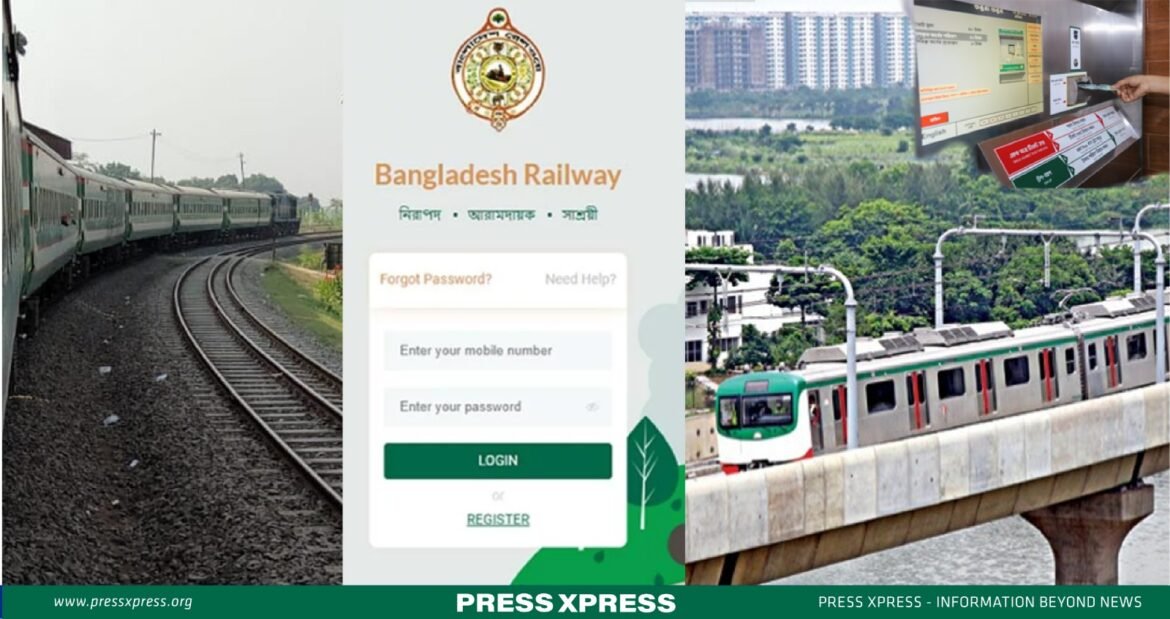Bangladesh Railway, ranking as South Asia’s second-largest railway network, spans 3,682 kilometers of track and accommodates approximately 1,800 trains every day. This vital transportation system carries an estimated 110 million passengers annually, and recent upgrades to coaches, locomotives, and management systems have greatly enhanced the comfort and services available to passengers. These improvements align with Bangladesh’s ambitious vision to transition into a developed nation by the year 2041.
You can also read: Mongla-Khulna Railway Line to Boost Domestic and International Trade
Since the inception of the Awami League government in 2009, they have initiated a total of 93 new railway projects, successfully completing 89 of them. Besides, the metro rail project is in full swing to decongest Dhaka city.

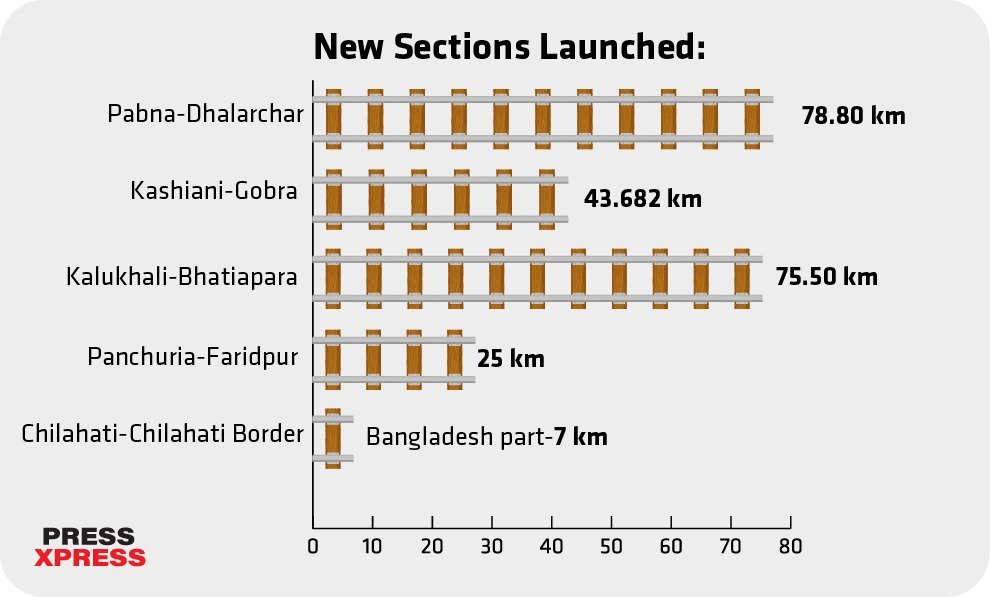
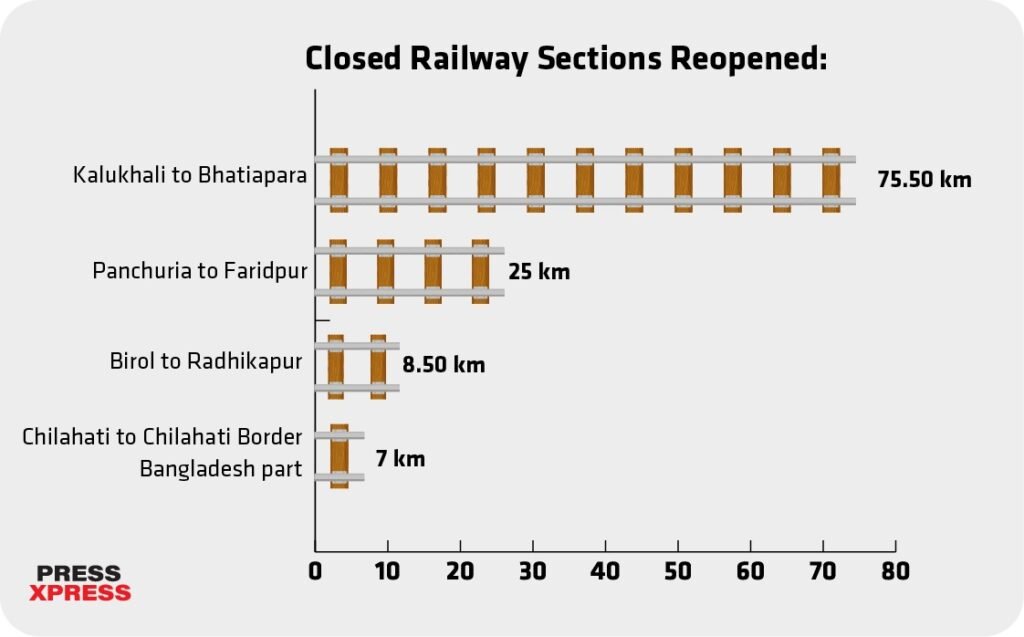
The Railways Masterplan 2016-2045
Bangladesh Railway takes a Master Plan 2016-2045 aims to connect Dhaka with Cox’s Bazar, Mongla Seaport, Tungipara, Barisal, the Chittagong Hill Tracts, and various other regions across the nation. A total of 230 projects, with a combined budget of Tk5,50,000 crore, will be executed in six phases as a part of this comprehensive master plan. The plan encompasses 15 corridors, all of which are expected to be fully operational by 2045.
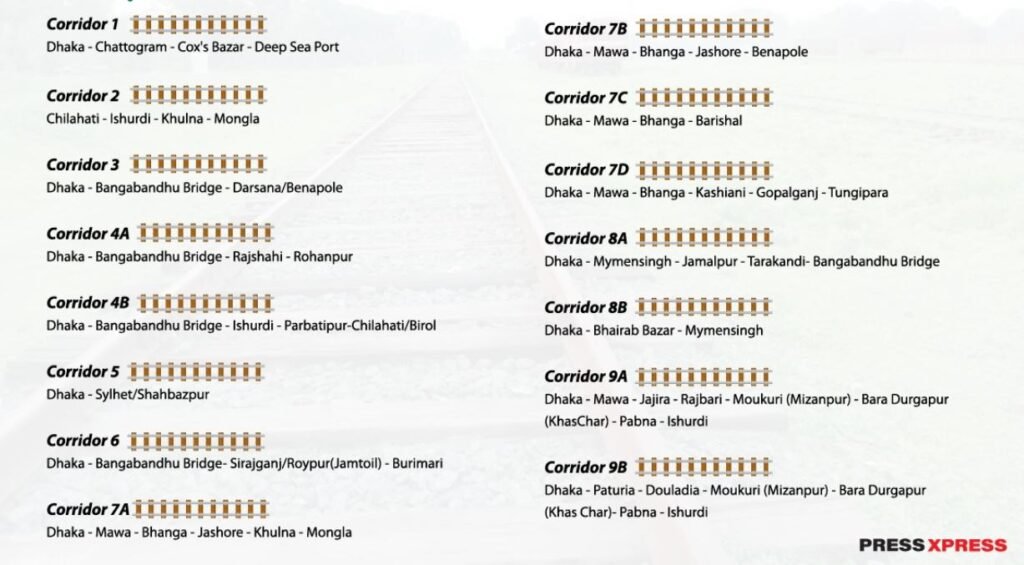
The double track dual gauge railway bridge over the river Jamuna has made significant headway, with construction progress currently standing at 40%.
The construction of the single line dual gauge track connecting Dohazari to Cox’s Bazar through Ramu and extending from Ramu to Gundum, near the Myanmar border, has reached a commendable 71% completion.
The Khulna-Mongla Port railway line was inaugurated through a virtual ceremony on November 1 by Prime Minister Sheikh Hasina and her Indian counterpart Narendra Modi. The is rapidly nearing its final stages, boasting an impressive 90% completion rate. The Rupsha Rail Bridge is on the verge of completion, marking a significant milestone in the railway infrastructure development.
The government’s proactive measures include the initiation of a railway line from Bhanga in Faridpur to Payra port via Barishal and Patuakhali, aimed at connecting Payra Port with the Padma Rail Link.
Alongside the Railway Master Plan, Bangladesh is dedicated to fostering extensive railway connectivity throughout the nation by adopting the National Land Transport Policy (NLTP) and National Integrated Multi-Modal Transport Policy (NIMTP).
Trans-Asian Railways
During the 1950s, when transportation infrastructure was less advanced, the United Nations Economic and Social Commission for Asia and the Pacific (UNESCAP) devised a Trans-Asian Railway project. Its primary goal was to establish a 14,080 km rail connection from Singapore to Istanbul, with potential extensions to Africa and Europe. Unfortunately, the plan faced significant challenges owing to political instability.
In 2001, a renewed demand for enhanced connectivity led to the study of four corridors, one of which was a southern railway route linking Istanbul to Yangon via Islamabad, Delhi, and Dhaka. This culminated in the Trans-Asian Railway Network Agreement in 2009, with Bangladesh becoming a signatory in 2007. Utilizing the Padma Rail Link is an effective means to circumvent potential delays and increased travel time along the Trans-Asian Railway, which could occur when bypassing the Padma River through alternative routes.
Bangladesh’s Next-Gen Transit Solution
On December 28, 2022, the Prime Minister ushered in a new era in Dhaka’s transportation landscape by inaugurating the first phase of the city’s groundbreaking metro rail project. This monumental endeavor, with a projected budget of Tk 22,000 crore, is designed to build a 20.10-kilometer elevated metro rail line, seamlessly connecting Uttara to Motijheel.
Just a month after launching the dream metro rail project from Uttara’s Diabari to Agargaon, Prime Minister Sheikh Hasina inaugurated the construction of the country’s first underground metro rail route, the Mass Rapid Transit (MRT) Line-1, on February 2nd, 2023. This marks Bangladesh’s entry into the world of underground mass transit, a feat typically associated with developed nations.
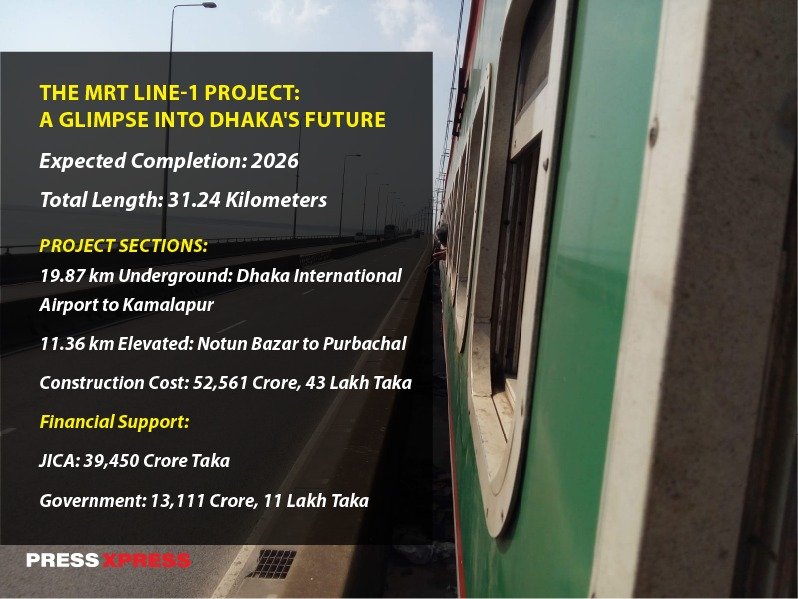
Special Provision for Women
At the same time, the establishment of the inaugural women-only coach for the nation’s metro rail service has been carried out, promising a safe and comfortable travel experience for female passengers. This proactive measure has brought significant relief to women using the metro, as they finally have a dedicated space that addresses the difficulties they often face when using public transport in Dhaka. It’s worth mentioning that this is the first “women only” service in any public transport.
The stations along the Uttara-Agargaon metro rail route have special gates and platform segments reserved exclusively for women, with regular announcements reiterating the policy. Security personnel are quick to redirect male passengers who mistakenly enter the designated area. We keep hearing recurring messages on the station’s speaker system, specifying- “The front coach is reserved for women only.”
On November 4, Prime Minister Sheikh Hasina inaugurated the second phase of metro rail service connecting Uttara and Motijheel.
E-Services of Bangladesh Railway
To obtain a ticket, one had to endure a prolonged wait in the queue. At times, even after enduring a long queue, individuals couldn’t secure their preferred tickets. In light of the challenges people were experiencing, the government introduced E-Ticketing via SMS in March 2009, followed by an online option in May 2012. There’s no longer a need for people to wait in lengthy queues. The ticket collection process is now straightforward, dependable, and secure, with minimal fees for using the service.
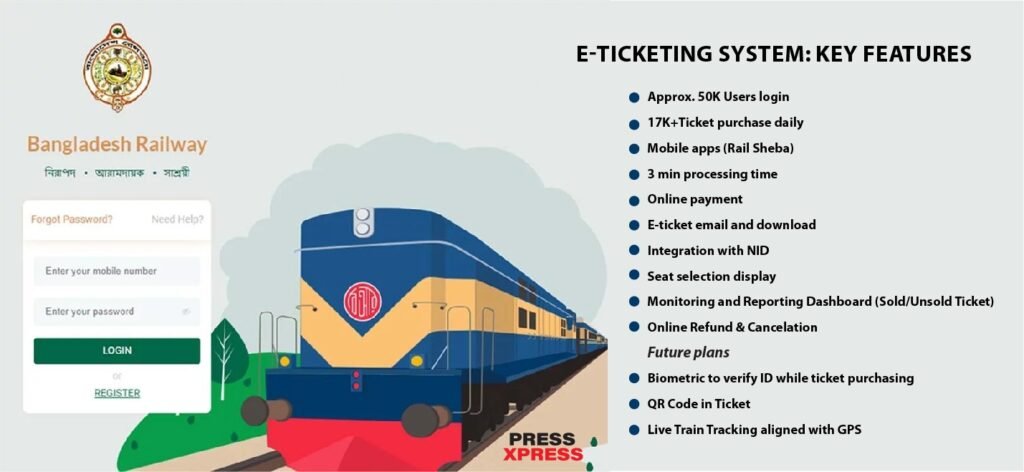
Additional e-services in Bangladesh include:
- GIS Based Railway Track and Bridge Management Information System (Pilot System)
- Bangladesh Railway Automated Support System (BRASS) Railway Estate Management System (Piloting at Lalmonirhat Division of BR)
- Train Tracking and Monitoring System
In conclusion, the government of Bangladesh has demonstrated a strong commitment to digitalizing and modernizing its railway systems to enhance transportation infrastructure and services. The implementation of metro rail projects, e-services, dedicated facilities for women, and the ambitious Railway Master Plan are all vital components of this effort.
These initiatives not only improve the passenger experience but also contribute to the country’s broader development goals. Bangladesh’s active participation in regional and international transportation agreements further underscores its dedication to fostering connectivity and economic cooperation in the region.

